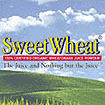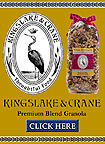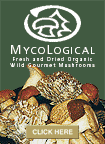When It comes to Matters of the Heart, Almonds Are a Multi-Tasker
Ground-breaking
research reveals more about the effects of almonds?
antioxidants on heart health
MODESTO, Calif., May 20 /PRNewswire-USNewswire/
-- The American Heart Association estimates that one in three
American adults have some type of cardiovascular disease, and
that cardiovascular disease is the largest major killer of American
men and women.(1) So, new research into mechanisms behind fighting
heart disease is welcome to many of us -- particularly when
it involves a simple behavior change that can make a difference.
The Food and Drug Administration reaffirmed what research has
shown for many years: that almonds are a heart smart food(2);
but, new, preliminary research published in this month?s Journal
of Nutrition provides further insight into how the antioxidants
in almonds may help maintain a healthy heart.
Almonds aren't typically known for their antioxidants beyond
vitamin E, but in previous research, experts determined total
antioxidants (phenols, flavonoids, and phenolic acids) in California
almonds? skins and kernels using high-performance liquid chromatography
(HPLC)/electrochemical detection, UV detection and mass spectometry.
They found that almonds contain flavonoids and phenolics in
their skins similar to fruits and vegetables.
Antioxidants at Work
In a previous study, 27 men and women with high cholesterol
levels consumed three supplements with the same calories each
for one month. Supplements consisted of full-dose almonds (73+/-3
g/d), half-dose almonds plus half-dose muffins, and full-dose
muffins. Significant reductions from baseline were seen on both
half- and full-dose almonds for LDL cholesterol (4.4% and 9.4%
respectively).(4) The current study, conducted in collaboration
by researchers at the University of Toronto and Tufts University,
sought to investigate other factors, beyond lowering cholesterol,
that make almonds a heart-smart food, specifically almonds'
antioxidants.
The
effects of almonds on two markers of oxidative stress, a process
which can contribute to clogged arteries, were measured by a
team at the Tufts University Antioxidants Research Laboratory
led by one of the single-most pioneering researchers in antioxidant
research, Dr. Jeffrey Blumberg. The research team found that
when men and women with elevated cholesterol ate about two and
a half servings of almonds every day for a month, their levels
of these two established markers -“ blood malondialdehyde
(MDA) and urinary isoprostane -" statistically significantly
decreased. MDA significantly decreased by 18.75% from baseline
in the full-dose almond group and isoprostane decreased by 27%
in both almond groups compared to controls.
The researchers hypothesize the antioxidants in almonds are
causing this positive effect, and further, that the antioxidants
in almonds combined with almonds? favorable effects on blood
cholesterol levels may help to explain the overall effects of
almonds on maintaining a healthy heart. Although this ground-breaking
study provides support for the role of almonds' antioxidants
in health, further research is needed to verify these findings.
A Heart-y Boost
Almonds deliver a dose of monounsaturated fats, the good kind
found in avocados and olive oil.(5) A recommended serving of
almonds (about a handful, or 23 almonds) is an excellent source
of vitamin E and magnesium, a good source of fiber, riboflavin
and phosphorus, and offers protein (6 grams), calcium (75 mg)
and potassium (200 mg). Not only can almonds boost nutrition,
but they also add great taste and crunch to any meal or snack.
For More Information
For additional information about almonds, including easy recipes
and snack ideas, visit www.AlmondsAreIn.com.
Attention, Editors:
Contact Amanda Orosz at amanda.orosz@porternovelli.com
or 202-973-2930 to obtain:
· An expert interview with Dr. Cyril Kendall, University
of Toronto
· Photos of a handful of almonds
· Easy, healthy almond recipes, along with full-color
recipe photos
Summary of Published Study:
Journal: Journal of Nutrition, May 1, 2008
Research Organization: University of Toronto and Tufts University
Study Title: “Almonds Reduce Biomarkers of Lipid Peroxidation
in Older Hyperlipidemic Subjects."
Authors: David J. A. Jenkins, Cyril W. C. Kendall, Augustine
Marchie, Andrea R. Josse, Tri H. Nguyen, Dorothea A. Faulkner,
Karen G. Lapsley, and Jeffrey Blumberg
Objective: To evaluate the effects of almonds on oxidative stress.
Subjects: 15 men and 12 postmenopausal women from 48 to 86 years
old. All subjects had elevated LDL cholesterol upon initial
assessment. Body mass indices ranged from normal weight to obese
(21.3 to 37 kg/m2).
Study
description: The study was a three-phase randomized crossover
trial with two week washout periods in between each one month
study phase. Subjects were randomized to one of three supplements
during the study period: whole natural almonds (73 g/d or about
2.5 ounces), whole natural almonds (37 g/d or about 1 1/3 ounces)
and half a whole wheat muffin, and a full whole-wheat muffin.
All supplements were matched for calories, protein, saturated
fat, polyunsaturated fat and fiber. Subjects were instructed
to reduce their calorie intake at other times in the day to
accommodate the supplemental almonds and/or muffin. The almonds
and/or muffin contributed approximately 20 percent of total
calories. During all phases of the study, subjects followed
a step II diet (<200 mg/day cholesterol and <7% saturated
fat) and had followed this diet for 2 months prior to the start
of the study. Subjects received counseling on strategies to
maintain their weight and holding exercise constant. No other
nuts were consumed during the study period. Body weight, blood
samples, and blood pressure were obtained at weeks 0, 2, and
4; seven day weighed diet records were obtained at baseline
and at week 4. Blood and urine was analyzed for markers of lipid
peroxidation, a process of damaging fat in the blood and causing
them to form plagues in the arteries. The markers measured were
blood levels of malondialdehyde (MDA) and vitamin E, and urine
isoprostane.
Results:
Blood levels of MDA decreased significantly during the almond
only study phase when compared to the control (whole wheat muffin
only). Urinary isoprostane was significantly lowered in the
almond only and half almond/half whole wheat muffin phases compared
to the control. Contrary to other studies, no increase in blood
levels of vitamin E were observed; however, subjects in the
study had higher blood vitamin E blood levels at baseline. During
the almond only supplementation, subjects achieved a significant
decrease in total and LDL cholesterol levels and higher HDL
cholesterol levels compared to the control.
Endnotes:
(1) Heart Disease & Stroke Statistics: 2008 Update at-a-Glance.
American Heart Association, 2008. www.americanheart.org/downloadable/heart/1200082005246HS_Stats%202008.final.pdf
(2) The U.S. Food and Drug Administration recognized almonds
with a health claim in 2003, stating, ?Scientific evidence suggests,
but does not prove, that eating 1.5 ounces per day of most nuts,
such as almonds, as part of a diet low in saturated fat and
cholesterol may reduce the risk of heart disease.?
(3) Milbury PE, Chen CY, Dolnikowski GG, Blumberg JB. Determination
of flavonoids and phenolics and their distribution in almonds.
J Ag Food Chem 2006; 54(14): 5027-33.
(4) Jenkins DJA, Kendall CW, Marchie A, Parker TL, Connolly
PW, Qian W, Haight JS, Faulkner D, Vidgen E. Dose response of
almonds on coronary heart disease risk factors: blood lipids,
oxidized low-density lipoproteins, lipoprotein (a), homocysteine,
and pulmonary nitric oxide: a randomized, controlled, crossover
trial. Circulation 2002; 106: 1327-32.
(5) Replacing saturated fat with similar amounts of unsaturated
fats may reduce the risk of heart disease. To achieve this benefit,
total daily calories should not increase.
The Almond Board of California administers a grower-enacted
Federal Marketing Order under the supervision of the United
States Department of Agriculture. Established in 1950, the Board?s
charge is to promote the best quality almonds, California?s
largest tree nut crop. For more information on the Almond Board
of California or almonds, visit www.AlmondsAreIn.com.
CONTACT: Lesley Shiery, +1-202-973-1382, Lesley.Shiery@porternovelli.com,
or Amanda Orosz, +1-202-973-2930, Amanda.Orosz@porternovelli.com,
both for Almond Board of California



















